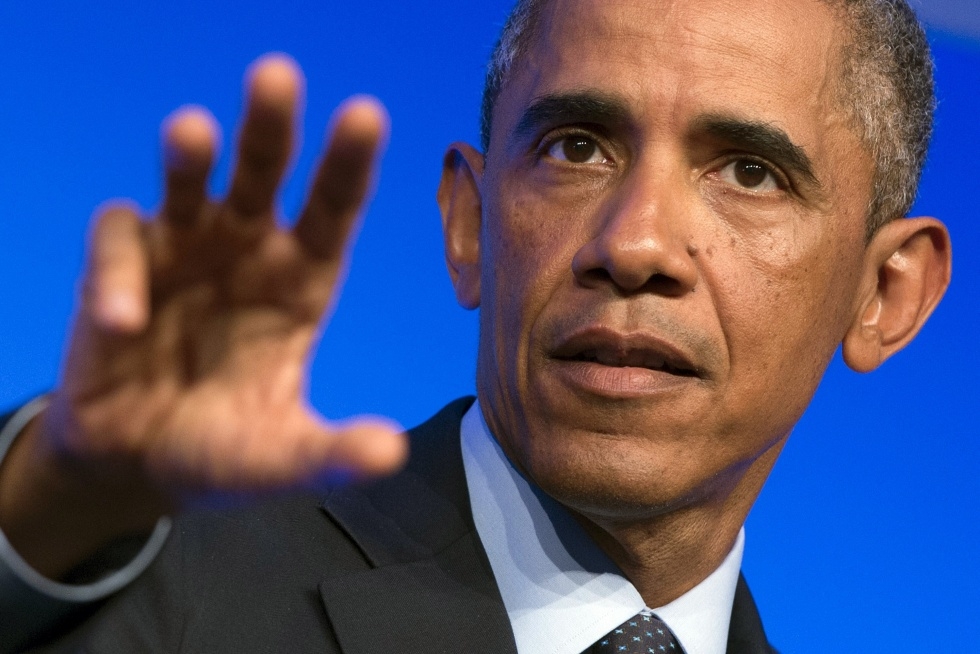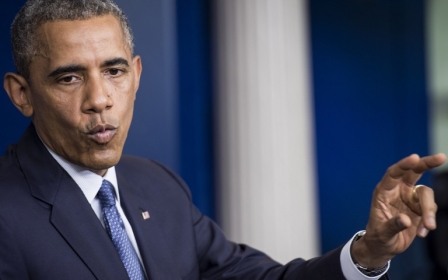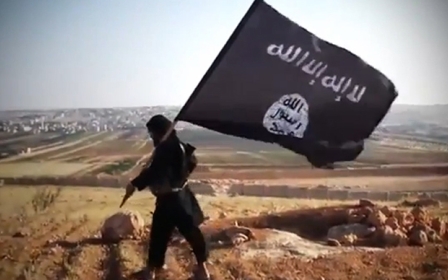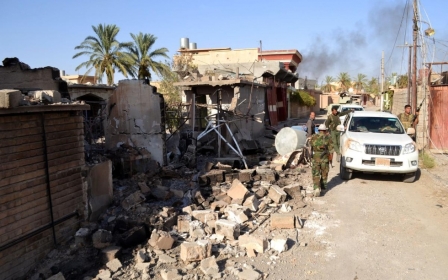US pushes ahead with anti-Islamic State alliance

International action against Islamic State intensified on Tuesday, with the US seeking a UN resolution to tighten up laws on foreign fighters and more European military aid filtering in to help those fighting militants on the ground.
The latest anti-IS resolution, proposed by the US, demands that all UN members make it a serious crime to enlist as a foreign fighter in militant groups such as Islamic State and Nusra Front in Iraq and Syria.
The draft, currently being circulated to Security Council members, is expected to be adopted at a special session of the top world body chaired by US President Barack Obama on 24 September.
Under the measure, world governments would take action against their nationals who travel or make plans to travel to a country "for the purpose of the perpetration, planning, or preparation of, or participation in terrorist acts."
It would also make it illegal to collect funds or help organise the travel of foreign fighters for groups like the Islamic State, which is on the UN terror list.
The text obtained by AFP demands that "all states shall ensure that their domestic laws and regulations establish serious criminal offenses sufficient to provide the ability to prosecute and to penalise in a manner duly reflecting the seriousness of the offense."
The move comes as the US stepped up its efforts to build a global anti-Islamic State coalition and pledges of military assistance to forces fighting IS continued to trickle in.
The UK today became the latest EU state to pledge millions in military aid to Iraqi Kurdish forces, saying that it would deliver $2.6 mn worth of heavy machine guns. Several other countries have also pledged military aid, although others have held back, insisting that the US had to present a firm plan of action before asking for a deeper commitment.
France on Wednesday announced that it would hold long-awaited talks on the IS threat 15 September, with the world scrambling to present a unified front against the militant group.
More than 40 countries - mainly Western powers or Middle Eastern allies - have now joined to form a bulwark against the movement, the State Department said, although it has only named 25 of them so far.
Analysts and policymakers have repeatedly stressed that in order to be effective, any alliance will have to include a range of regional Sunni States.
"Trust is so low, especially in the Gulf region, for [US President Barack] Obama's leadership quality and the way he manages foreign policy,” Mustafa Alani, the director of the security and defence department at the Gulf Research Center in Geneva told CBS news. “I don't think any country is going to put its hand up or neck out by accepting an alliance with the US that easily.
“These countries can offer a lot, but I think any cooperation here is going to be conditional," Alani added.
While progress has been slow until now, Saudi Arabia on Tuesday announced that it would hold talks between 10 Arab States and Turkey and US Secretary of State John Kerry on Thursday.
Kerry is currently on a tour of the Middle East attempting to drum up support ahead of the meet. Despite some suggestion that the West might start cooperating with Syria’s President Bashar al-Assad, who is also fighting IS, Syria will not be at the talks.
Obama to give key speech
US President Barack Obama is also planning to publicly reassure the US public as well as international allies tomorrow during a prime time televised address where he will speak from the ceremonial state floor of the White House, officials said.
The speech will attempt to redress criticism that he has been slow to respond to the militant group's seizure of a haven in Syria and Iraq, amid fears fighters armed with Western passports could train their sights on the US homeland.
Obama will enlist public support for a new military venture abroad at a poignant moment - the eve of the 13th anniversary of the September 11 attacks - which pitched America into a Middle East conflagration he has spent much of his presidency trying to escape.
White House spokesman Josh Earnest said Obama would use his speech to "discuss with the American people the threat posed by (IS) and to lay out the United States' strategy for degrading and ultimately destroying the terrorist group."
Expectations that the president will expand US strikes in Iraq into Syria coincide with signs that the American public sees the group as an increasing threat, and is increasingly open to stepped up military action.
Since June, American support for airstrikes on Islamic State targets in Iraq has grown nearly 30 percent, a new poll released today has suggested.
According to the poll by Washington Post-ABC News, 71 percent of all Americans say they support airstrikes in Iraq. This is up from 54 percent three weeks ago and from 45 percent in June.
The poll also found that 65 percent of Americans are in favour of launching airstrikes against IS in Syria – a controversial move as it could possibly benefit the Syrian regime of Bashar al-Assad.
"That is more than double the level of support from a year ago for launching airstrikes to punish the Syrian regime for using chemical weapons," the survey said.
The CNN-ORC International poll released Monday also found similar support for airstrikes against the insurgent group.
That survey showed 76 percent of Americans in favour of airstrikes against IS targets, while 90 percent of Americans think that the Islamic State is a threat to the US.
The United States has conducted at least 148 air strikes against IS targets in Iraq since 8 August and it has more than 800 military personnel to safeguard its Baghdad embassy and to assist Iraq's army.
It continued to pound IS positions on Tuesday, helping Iraqi Kurdish Peshmerga fighters to hold their ground near the hotly-contested central city of Kirkuk, despite repeated IS threats to launch a major offensive.
New MEE newsletter: Jerusalem Dispatch
Sign up to get the latest insights and analysis on Israel-Palestine, alongside Turkey Unpacked and other MEE newsletters
Middle East Eye delivers independent and unrivalled coverage and analysis of the Middle East, North Africa and beyond. To learn more about republishing this content and the associated fees, please fill out this form. More about MEE can be found here.




